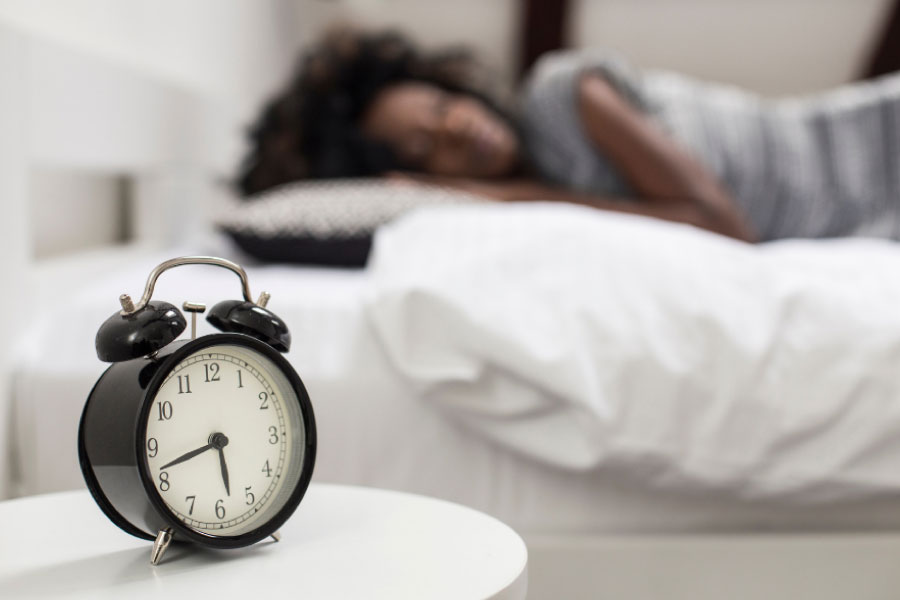
Sleep is the Self Care Secret Weapon for Working Homeschool Moms
We all know that sleep is important for self-care. This is not going to be a revolutionary post. But I hope it will remind you that it is the self-care secret weapon for moms juggling work and homeschool. And to give you some tips for how to get more of the most delicious activity in the world.
Why is Sleep so Important?
Lots of stuff happens in your body and brain when you sleep. According to a post by the American Sleep Association, your body:
- repairs itself,
- synthesizes proteins,
- and releases growth hormones.
It’s probably a no-brainer that sleep is important. But you may be surprised to find out the crucial role sleep plays in your overall well-being. Lack of sleep can affect everything from your mental health to your waistline.
American Sleep Association
At the same time, your brain isn’t being idle. There’s a lot of activity in there like:
- reorganizing and processing memories and events,
- and consolidating new information.
So what does a lack of sleep mean for us? Well, it can have lots of negative effects on our lives. Some include:
- slowed down reaction times,
- reduced immune response to infections,
- a possible increase in depression,
- and even increased risk of heart disease, diabetes and high blood pressure.
Ok right. We need more snooze time! But how can we get it?
Some Tips to Get More Sleep
I’ve asked my audience over the last few days about how they sleep. And it’s been a topic that’s really made a lot of people comment and share. So let me share with you what they said! And hopefully some of these ideas could help you to snooze better.
Magnesium and Melatonin
This article on the National Library of Medicine speaks about a study conducted on 60 people who suffered from insomnia. They were given a combination of magnesium, melatonin and B vitamins over a period of 3 months. The patients reported a decrease in insomnia during the 3 months period.
This is by no means medical advice. Please consult your doctor before taking any supplements or medication.
Avoiding Alcohol and Caffeine before Bed
This one I know first hand. I find it very difficult to sleep well when drinking alcohol or coffee before bed. But let’s look at the science behind this.
Matt Walker, who has a number of TED Talks about sleep, says that caffeine lasts much longer than you might think. He says that you can still feel the effects 12 hours after drinking a cup! So that means you should probably have your last cup of coffee at 9:30am if you intend to go to bed at 9:30pm!
He also says that caffeine affects your REM sleep. REM sleep is the deep restorative sleep that has the most powerful effect on us. I know that many people can drink caffeine late at night, but it’s the quality and not quantity of sleep that’s affected.
Alcohol is also a no-no if you want to have beautiful, deep repose. Matt says that alcohol:
- causes sedation, which results in erratic and exhausting brainwaves,
- wakes you up in the night as it triggers flight or fight responses,
- and stops your eyes from moving during restorative REM sleep.
Keeping to a Regular Sleep Schedule
The Sleep Doctor wrote an interesting post about why a regular sleep schedule is important for your health. He cites a study that was done over 6 years with 2000 adults. People who did not go to bed within the same 30 minute period every day, saw increases in:
- heart disease,
- metabolic issues,
- obesity,
- stroke
- and high blood pressure.
I think it’s clear that having a regular bedtime is vital! And this is definitely something that can be done quite easily!
Meditation
My dear friend Deanna, who is a certified meditation teacher, believes in power of calming your mind before bed. And this was her recommendation for sleeping better. Once again, science backs her up!
An article on Harvard Health Publishing speaks about the benefits of mindfulness and meditation for your nightly rest. Adults who suffered from insomnia were studied again. And the results spoke for themselves.
After 6 sessions of mindfulness and meditation, they saw a decrease in insomnia, stress and depression. Dr. Benson, who conducted the study, taught the participants how to bring on a relaxation response, through mindfulness practices. Spending 20 minutes a day is doable and worth it!
Try Biphasic Sleep
My mother sent me some interesting articles about biphasic sleep. Apparently, the idea of sleeping 8 hours a night is actually quite a new one. In the past, people tended to sleep in two sessions rather than one long block.
This could look like sleeping less at night and napping during the day. Or you could even break up your night sleep into two sessions with a break in between. Science does not back it 100%, according to a Healthline article. But apparently people have had good results from this type of sleep.
Do What Works for You
I think at the end of the day, as with anything related to caring for yourself, you need to do what works for you. And it needs to be sustainable and manageable. It could take time, thinking out of the box and tweaking to find the sweet spot.
But whatever you do, try and prioritize sleep. Because it is one of the most powerful and effective ways to look after yourself. And as a working homeschool mom, you are the most important person in your life.
Follow me Instagram, Facebook and Pinterest for more homeschool shenanigans, advice and resources. And please book in a coaching call with me if you feel you need some extra support or encouragement.



